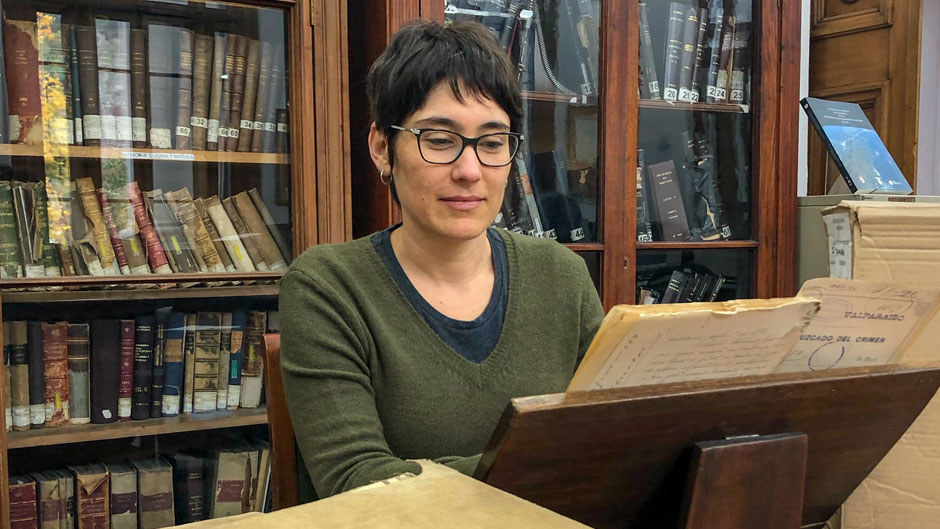As a Ph.D. student in the University of Miami Department of Sociology, I am currently in Chile working on my dissertation, “Women in abortion cases in Chile (1874-1950).” I chose to study the topic of abortion in Chile since it has been a hotly contested topic—one that has defined relations between women and the Chilean State for the past 145 years.
Pregnancy termination was fully criminalized between 1874 and 1931 when laws were passed that made abortions possible only under restrictive legal exceptions. These exceptions remained in place until 1989, when former President Augusto Pinochet reinstalled full restrictions. Only recently–in 2017–has abortion been decriminalized in my country and only under three conditions: when there is a threat to the life of the mother, if a woman was raped, or if the fetus was not viable.
The year 1874 is a key date since the first Chilean penal code was published, replacing the rule of the Spanish code. In 1931, the sanitary code established the exception for therapeutic abortion. I have been doing research in the National Library’s Archives where the vast majority of the documents are not older than the late 1930s. I chose the cutoff date of 1950 to make sure I collect all that is available in this archive.
I am currently doing fieldwork in the city of Santiago, coming every day to do archival research at the National Library. There is a limit of 6 to 8 boxes per researcher per day. The joys of bureaucracy!
I received a Tinker Grant through UM’s Institute for Advanced Study of the Americas, so I was able to hire a research assistant who is helping me with the research, and allowing me to work twice as fast. Her name is Leonor Azocar and she is a history postgraduate student working on her master’s thesis at Universidad Andrés Bello.
Already in the second week of fieldwork, I have several cuts on my hands. The dust of the files, the latex and powder of the gloves which are required for researchers, and the cold weather in the Chilean winter is cracking my hands.
As I read through the case files, I noticed that the legal category of abortion has had historically problematic and unclear boundaries with infanticide and miscarriage. The legal and medical discourses joined efforts to impose rational categories upon the elusive social reality of women’s sexuality and reproduction.
Women prosecuted for abortion, mostly coming from poor backgrounds, see themselves subjected not only to interrogation and public scrutiny, but also to gynecological examination that includes breast and uterus frisking (palpaciones).
Through these files, I see the violence of the legal and medical institutions on these women, not only physical, but also symbolic, by imposing the criminalization of reproductive practices. Maybe the little cuts on my hands are trying to bear testimony of those past silenced wounds.
Maria del Rosario Concha Mendez is a doctoral student in the University of Miami College of Arts and Sciences. She is a Ph.D candidate in the Department of Sociology. The Institute for Advanced Study of the Americas acknowledges the support of the Tinker Foundation in making this graduate field research possible.

